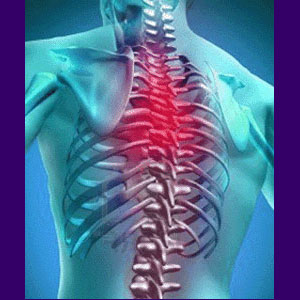
The psychology of osteoarthritis is something we must all come to terms with as we get older. Arthritis in the spine is a particularly scary location to suffer from this intimidating degenerative condition. A lack of understanding of the arthritic processes can cause us undo worry and fear, as well as actually make the physical suffering often blamed on these degenerative processes even worse.
However, once you realize that the arthritic processes are normal and typically not overly symptomatic, it is generally easy to repudiate the nocebo effect of the diagnosis and live a pain-free and active life well into old age. Just be sure to learn all the facts about arthritis and its virtually universal nature.
This article clarifies the universal truths of spinal osteoarthritic change and delves into the effects the condition has on the emotional self.
Psychology of Osteoarthritis Reactions
Spinal arthritis is generally blamed for causing pain through one of following common processes. All of these mechanisms sound scary and can therefore enact troublesome psychological effects on the patient if not properly and objectively explained by the diagnosing physician:
Facet joint syndrome might cause pain through increased friction and bone-to-bone contact in the facet joints.
Osteophyte formation near the neuroforaminal openings can enact foraminal stenosis in rare instances, causing a pinched nerve or sciatica symptoms. This diagnosis is made far too frequently and is actually a rather uncommon event in the spine. Remember; in order for a bone spur to actually impinge on a nerve root, the foraminal opening would have to be almost completely closed off.
Osteophyte formation can also cause spinal stenosis, which can enact severe symptoms in some unfortunate patients. However, once again, this condition is diagnosed far more often than it truly occurs in symptomatic form. Some stenosis is completely normal and universal as we age and does not necessarily cause any pain or nerve symptoms.
Psychology of Arthritis Therapy
Osteoarthritis care generally consists of symptomatic treatment using powerful pain management drugs. The pharmaceutical industry profits greatly from osteoarthritis and some of the most commonly prescribed pain relievers are given to fight the (often misdiagnosed) pain of the arthritic processes.
Some unlucky patients are forced into surgical correction for their seemingly arthritic-induced pain. Back surgery generally demonstrates poor curative results, but arthritis-related surgery fares better statistically than procedures for most other treated conditions. Remember, surgery should always be an absolutely last resort, since damage done to the spine during an operation is often permanent and irreversible. Of course, the fear and anxiety built up around the diagnosis is usually more than enough to frighten any patient right onto the operating table, regardless of whether the procedure is truly needed or not.
Psychology of Osteoarthritis Suggestions
Getting older is not too much fun. We all know that for sure. There are going to be little aches and pains associated with the aging process and arthritis does cause some minor discomfort in certain patients. However, osteoarthritis is rarely a serious event in a person’s life, unless they are convinced that they are suffering from a health crisis of significant importance.
Do not let a care provider scare you into believing that your arthritis will inevitably get worse and worse over the years, since research has clearly proven this to be incorrect. Most arthritis symptoms are mild and have a good chance of resolving on their own.
Be very careful about continuing pharmaceutical usage and be warned against premature (or any) back surgery. If you think of arthritis in the same manner as gray hair and wrinkles, it is unlikely to be so frightening after all.
Back Pain > Psychology of Back Pain > Psychology of Osteoarthritis





